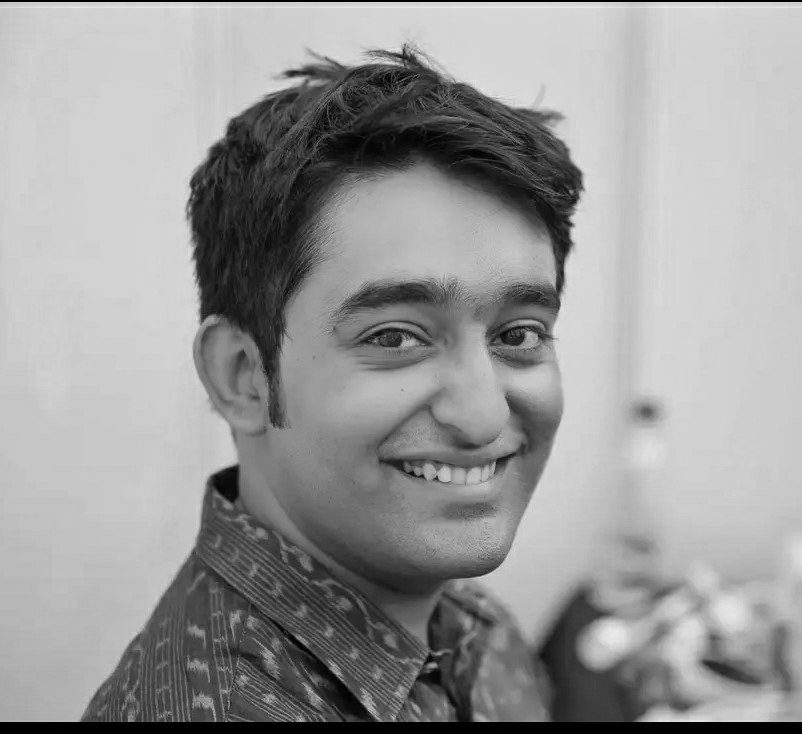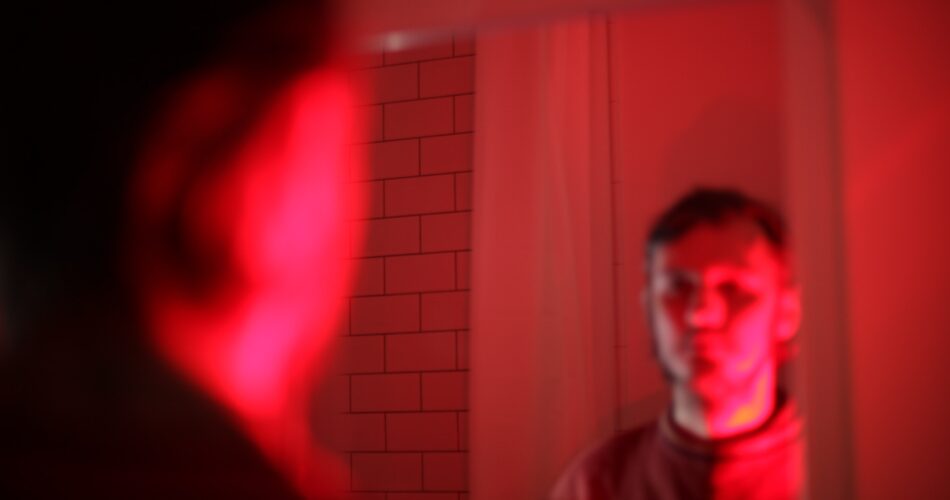| Abhishek Basak | October 2023 | Flash Fiction |
My friends tell me I have two faces.
One with a beard, one without a beard.
And it’s true you know.
In college, when I had a beard, I could walk into any bar and nobody would ask me for any I.D. But even now, whenever I shave and enter a bar, I am asked to prove my age. My friends say, “Yaar when you grow a beard, your face changes. You become unrecognisable.”
***
On the 19th of December, 2019, I had a beard.
It was the height of the C.A.A/ NRC protests—a time when I had believed in the inevitable victory of emphatic resistance, a time when I was young and naïve enough to think I could take on anything.
On that day I had skipped work to go to Mandi House where, I had been informed, there was going to a big protest.
I won’t lie, I was a little nervous, a little jittery, when the cab arrived.
But I sat down inside anyway. I noticed the cab was clean, that it smelt of air freshener and leather, that from its rear-view mirror hung a small, saffron Hanuman in a posture of flight, a gada heaved over his muscular shoulder. I did not think much of it. For the cab driver was very amiable, very talkative, and he blathered incessantly about, “dilli ki sardi and Ola vs Uber and what not”, while I politely nodded. Then he turned to me and asked, “Acha sir drop kahaan ka hai?”
“Mandi House,” I said.
And I watched the light vanish from his eyes. His smile straighten into cool reproach.
Silence then.
Me sitting in the back of the car, swamped by the quiet, while the driver’s face now, a sculpture of stone.
When I reached Mandi House and got down, the cab drove away fast.
I watched it vanish from sight, somewhat perturbed, but still unfazed. Then I turned and looked at Mandi House. Barricading everywhere. The roads deserted. An army of policemen in helmets, lathis and vests, standing on the footpath, mute and still, like statues. In the distance a group of people—maybe ten, twenty—huddled together like frightened chickens in a chicken coop. From behind me I heard a sharp voice: “Abe detain hona hai kya? Chalte rai saale!” I turned around.
In my memory now, the features of this bellowing policeman are deformed and bloated. When I close my eyes I see a man broad like a silverback gorilla and tall like an oiled-up wrestler. The arms the size of my thighs, a steely grimace, the eyes pools of jet-black and full of cruelty. I walked instantly. I walked until I crossed the footpath the police were standing on and then onto the road and then onto the adjacent footpath where the protestors were clustered together.
I waited with them. I felt safer with them.
The rest I remember as if in a dream.
I remember a guy running past us, fear etching his face into a strange grimace. I remember us turning to look and seeing an army of policemen surging towards us from our rear. If I close my eyes, I can hear the quiet thunder of their footsteps, see the cloud of dust that rose in their wake, feel the terror of their calm, clinical approach. I remember starting to run forward but seeing another army of policemen closing in from the front.
I turned to my left. To my left was a wall.
I turned to my right. To my right, a rusty fence.
Trapped, cornered, I did nothing. I just flapped and squawked about, until two arms grabbed me like a vice.
I remember that in the policeman’s grip, I could not move an inch.
I remember that his hands were bigger than my face. That I was lifted so effortlessly into the air while my legs flailed about. That I was dragged across the footpath, across the road, to the other side, and plunked right where the army had been.
I was the first person they had grabbed.
I remember that they kept grabbing more men.
I remember that each one of the men had a beard.
I was going to be detained. I had never been detained. I had never had a singular encounter with the police in my life. My hands shook, my breath became unsteady, I started hyperventilating. Then I saw a policeman looking at me from the corner of his eye. When I looked at him, he looked away.
I would remember him distinctly.
For when the cops started moving us to the bus, when I slowly started walking behind the protestors and policemen, he made his way towards me. Then he turned to me and quietly said: “Nikal le yahaan se.”
I didn’t understand. He said it again: “Abe nikal.”
And I just stopped walking.
And I saw the whole group of cops and protestors moving away from me, getting onto the bus, and leaving.
And I stood there, confused, feeling like the last person standing in Mandi House.
I have no idea why he chose to save me.
***
The protest had moved to Jantar Mantar and I was at my house.
I wondered whether I should go too and then I remembered the policeman grabbing me like a butcher grabs the neck of a chicken.
I wondered whether it would be safe there and then I remembered how they had tossed me onto the footpath like I was made of feathers.
I walked around my house, restless, confused.
“I’m going to Jantar Mantar,” I told myself finally.
So I got ready again. I wore my shoes again. Booked a cab again. But before leaving I went to the washroom.
I looked at myself in the mirror.
And then I did something that I still think about. That still disturbs me.
I grabbed my razor.
I shaved my beard.
_________________________

Abhishek Basak is a writer and actor based out of Delhi. He is a graduate of Kirori Mal College, where he studied English Literature, and has a Masters in Performance Studies from the Ambedkar University, Delhi. He has acted in plays for companies like The Tadpole Repertory, Crow and The Third Space Collective. His plays and short stories have been published by The Dhauli Review, The Gulmohar Quarterly, and have also been staged and performed by The Tadpole Repertory, Crow and the N.G.O Navdanya. Currently he is part of the Theatre Faculty of Shiv Nadar School, Faridabad.
_________________________
Photo by Jana Shnipelson via Unsplash
Find The Mean Journal on Instagram @MeanPepperVine


